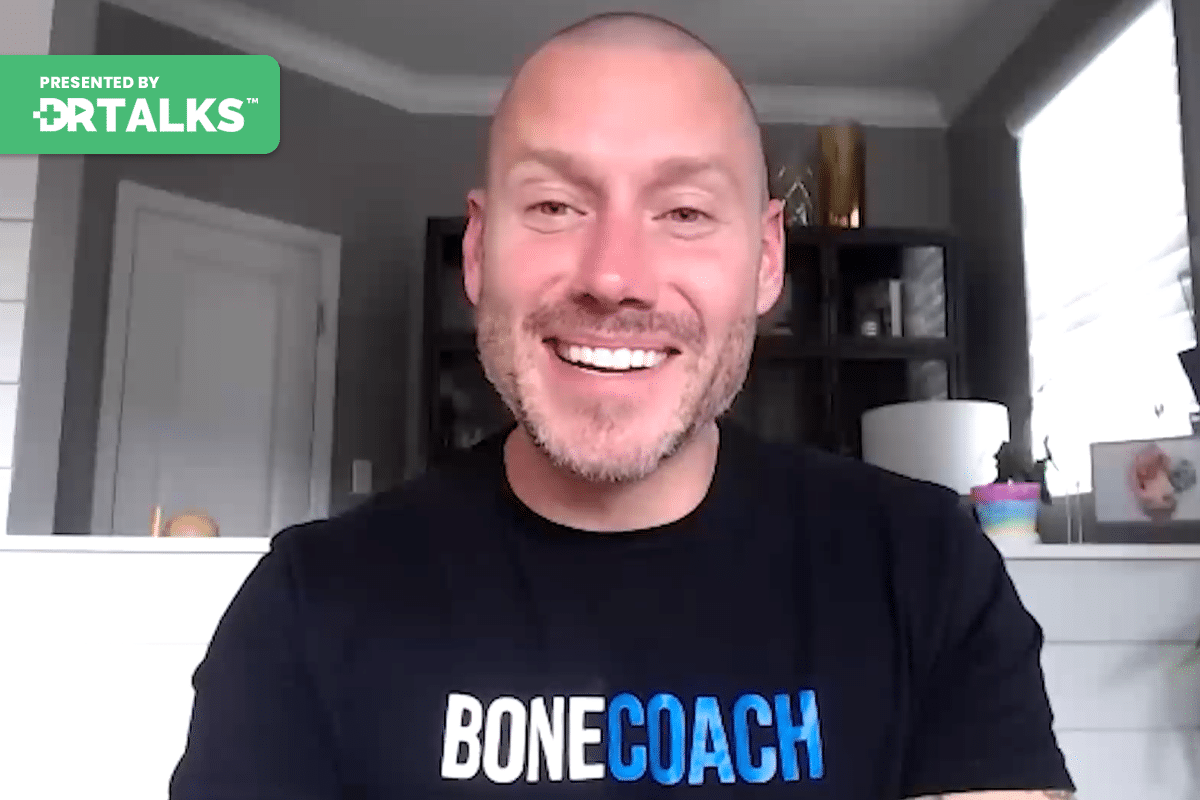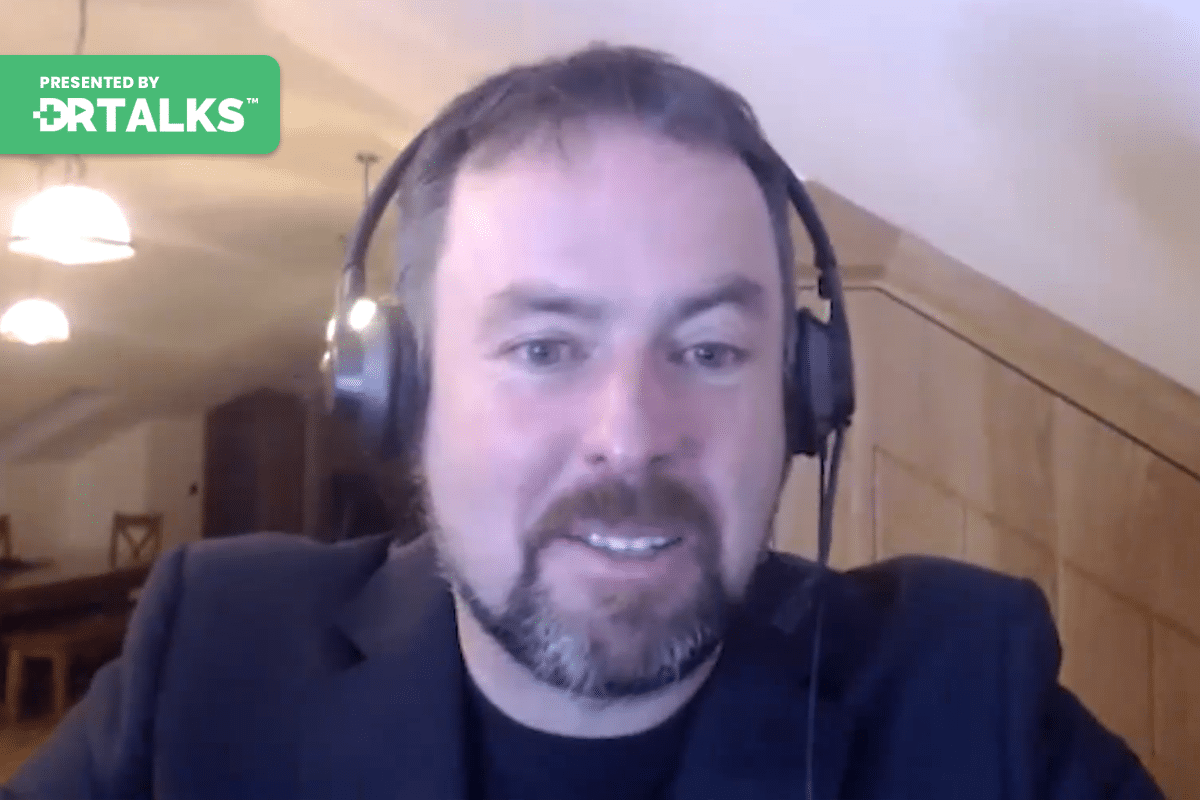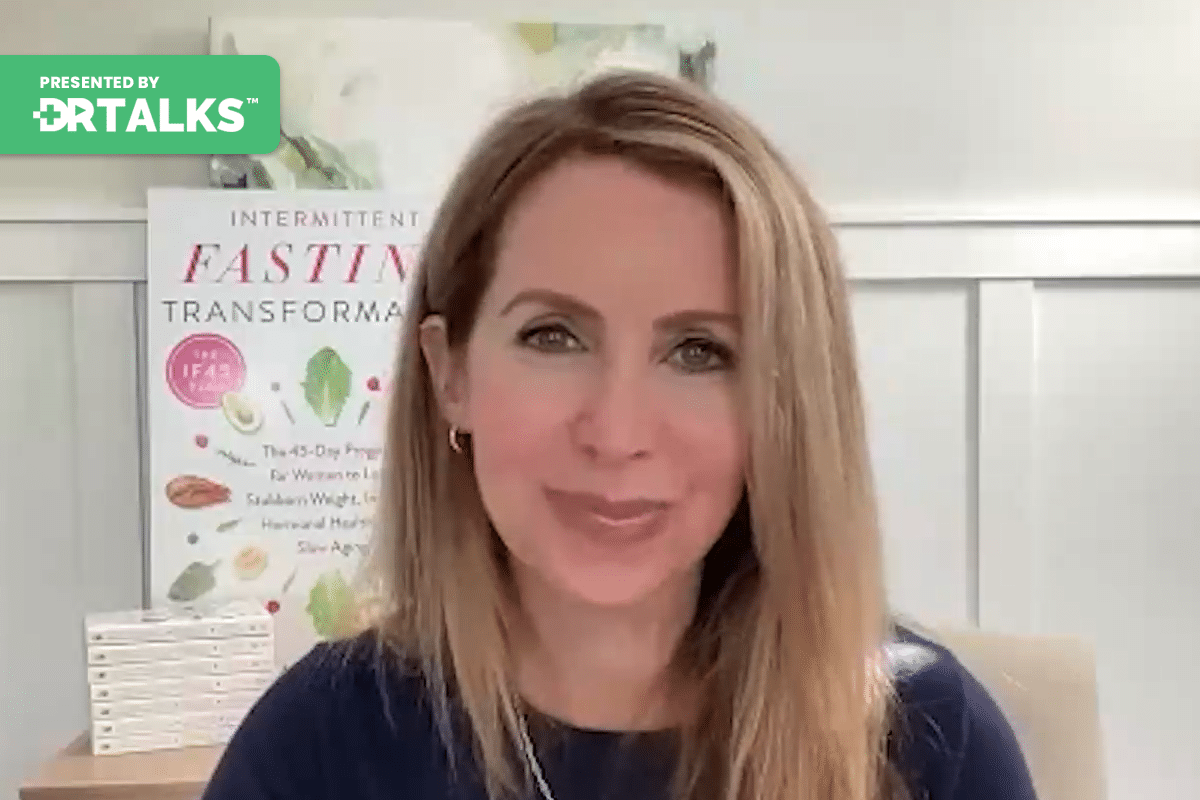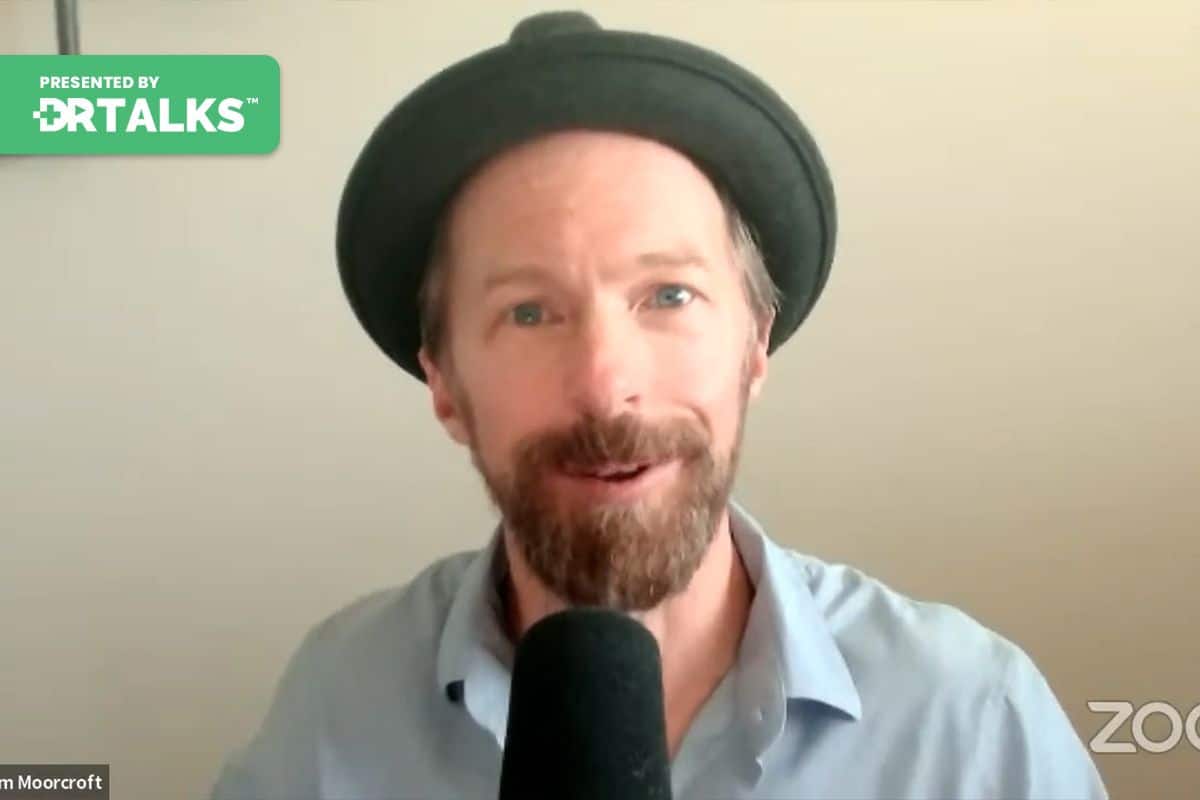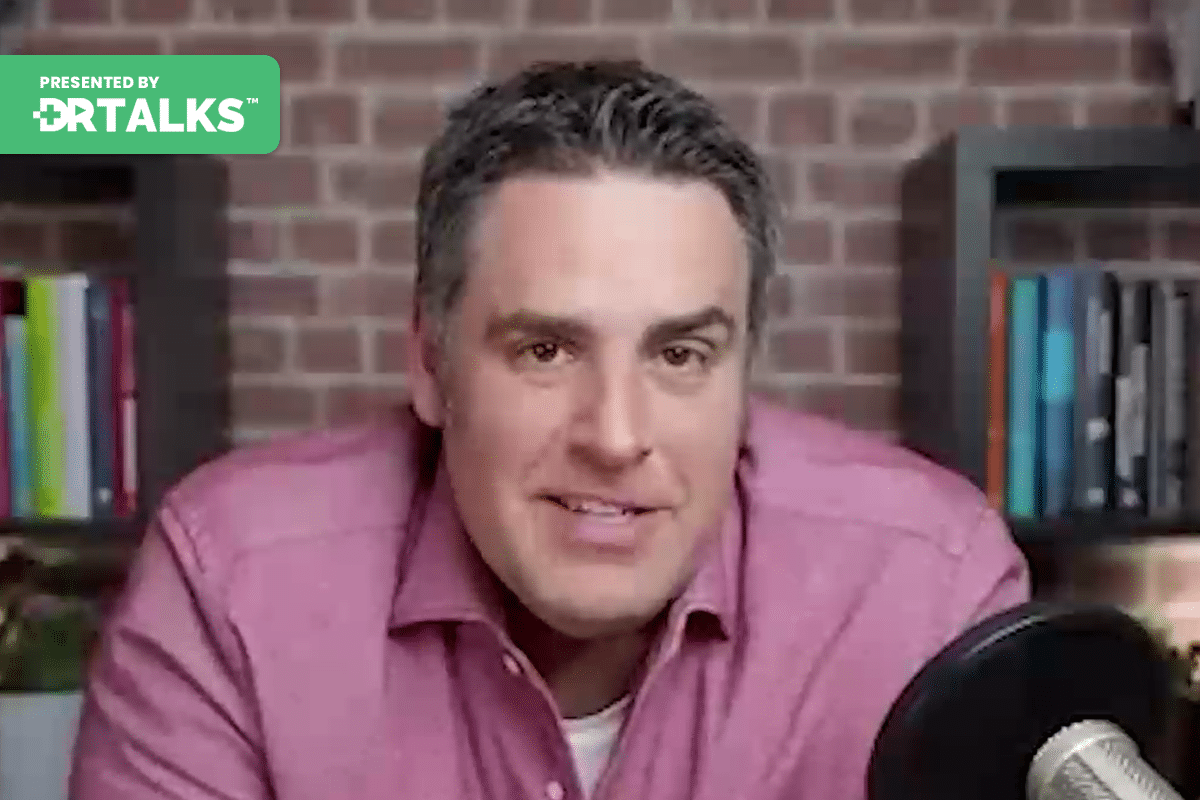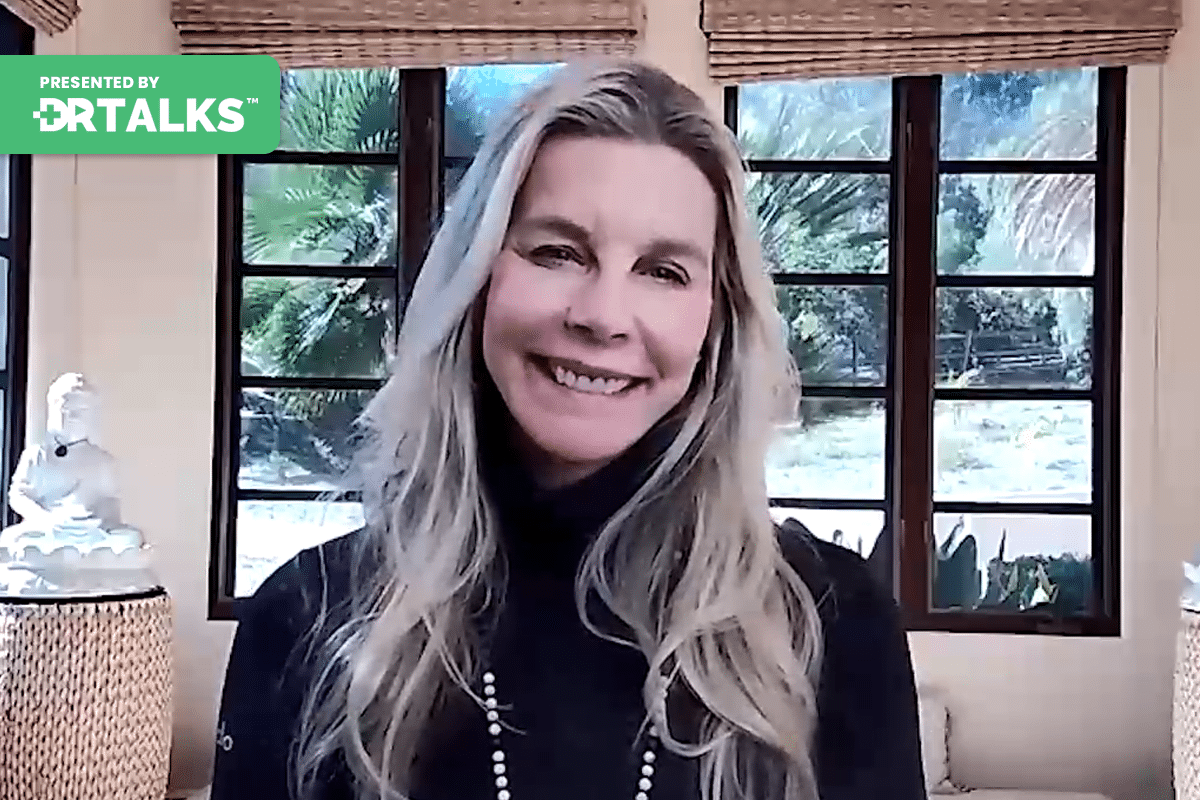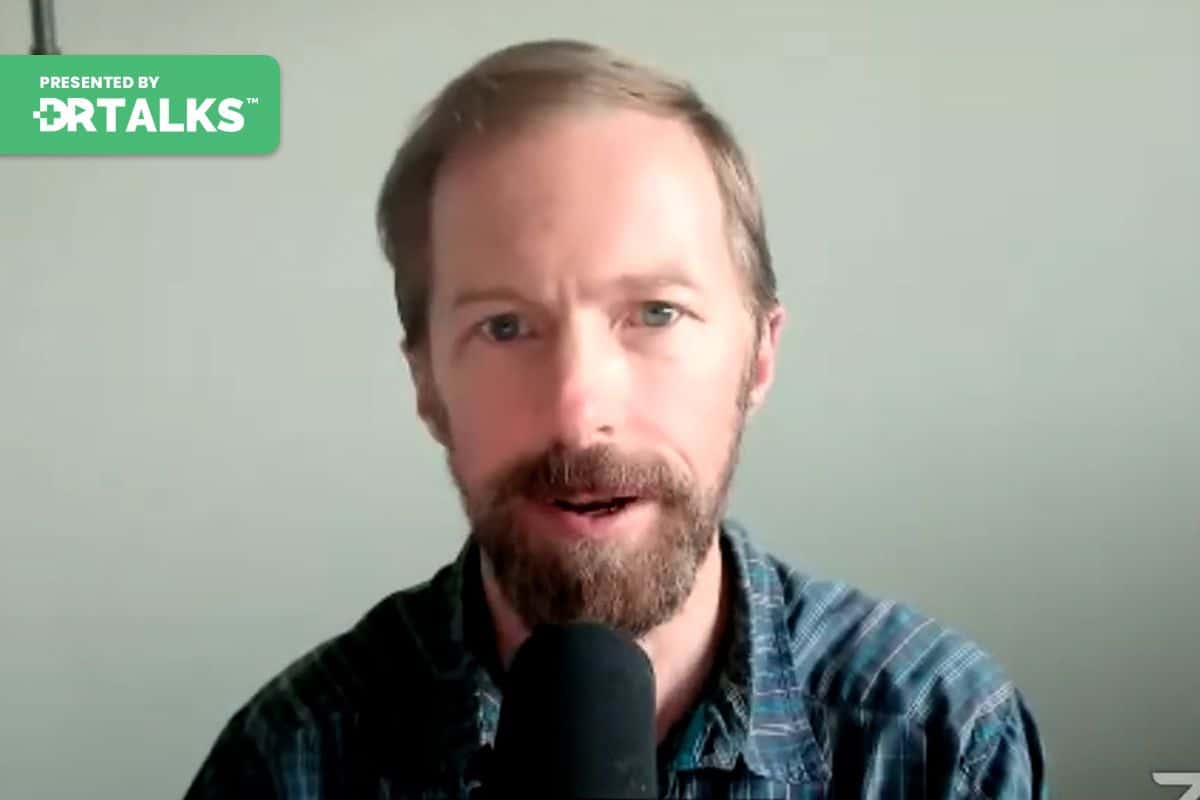Join the discussion below
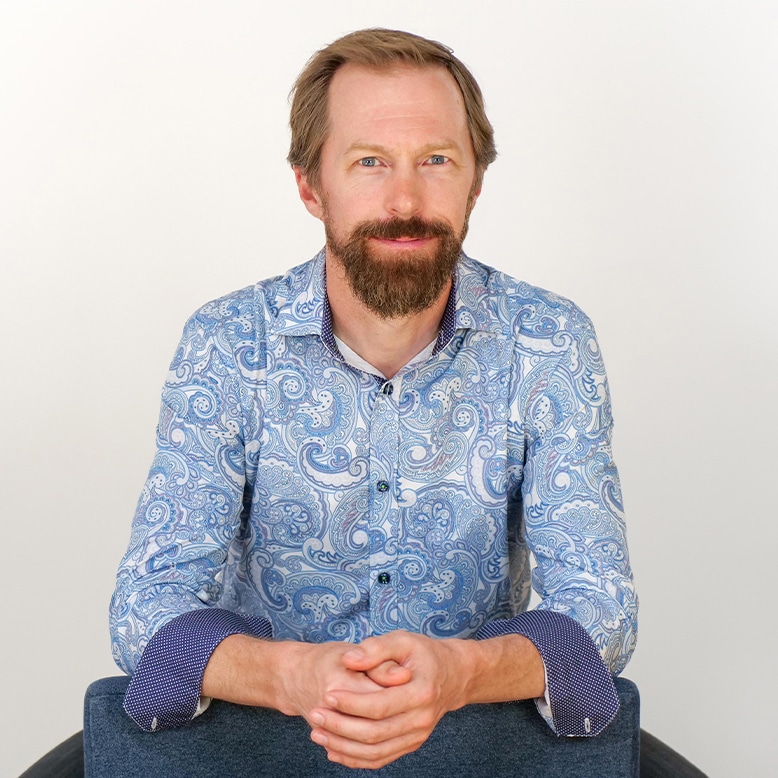
Dr. Tom treats some of the sickest, most sensitive patients suffering from chronic Lyme disease, tick-borne co-infections, mold illness as well as children with infection-induced autoimmune encephalitis (PANS/PANDAS). He focuses on optimizing the body’s self-healing systems in order to achieve optimal health with simple, natural interventions; utilizing more conventional approaches... Read More
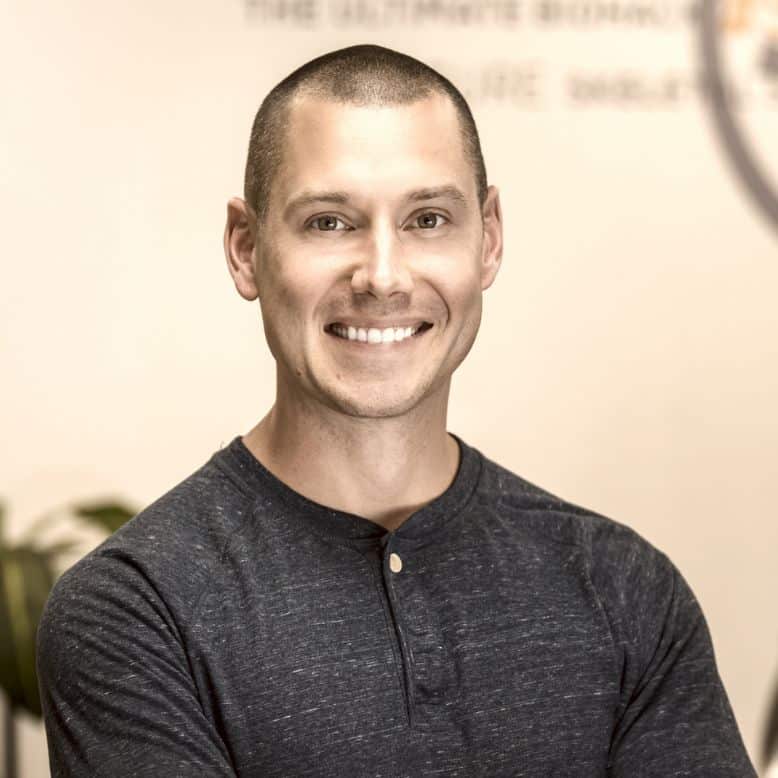
Kevin Ellis, better known as Bone Coach™, is a certified Integrative Nutrition health coach, podcaster, YouTuber, bone health advocate, and the founder of BoneCoach.com. After an osteoporosis diagnosis in his early 30s, he realized just how challenging it can be for the average person to make sense of what needs... Read More
- What is the connection between Lyme Disease and osteoporosis?
- How do Lyme Disease and other tick-borne co-infections affect our bones?
- What is the connection between gut health, immune function and bone health?
- Learn some of the top foods for healing from Lyme disease and supporting stronger bone health
- What does a Stronger Bones plan look like and what lessons can we learn from this to optimizing healing from Lyme disease?
Thomas Moorcroft, DO
Everyone, Dr. Tom, back here with you for this episode of The Healing from Lyme Disease Summit. And today we’re in for a really big treat. We’re being joined by my really good friend Kevin Ellis, the bone coach. And one of the things I try to do for the whole summit is really to share with you not only that latest, greatest research and all the things that you may have not heard about with Lyme disease. And we’re going to dove into some of that today, but also to inspire you and give you that hope for moving forward and understanding that there’s so much that you can do in your life that helps you become more resilient to infections, whether it’s bacterial or viral, whether you pre you want to prevent getting them, whether you have them and you want to get over them and live your best life.
But then there’s also this other crazy thing called life, right? Like all the other things that are going on in your life are still happening. And so today, Kevin and I want to talk to you about the connection between Lyme disease and bone loss and how to really build a stronger bones plan. And one of the things I think is so interesting is when I was with Kevin and I have known each other for a while, and his program on osteoporosis and osteopenia is second to none. But the first thing I thought of as I want you to all to understand man or woman, older or younger, you do need to worry about your bone health just in general with life. But then as we started to prep for this, we talked a little bit more about the direct connection between Lyme disease and bone loss. So this is really where I think you’re going to get a lot of value today. So Kevin Ellis Bone, Coach, welcome and great to be here.
Kevin Ellis
Dr. Tom. It’s great to be here. I’m looking forward to this is going to be great.
Thomas Moorcroft, DO
Yeah, I’m super pumped. Then one of the things like I always try to bring is a new and different perspective that’s based on science as well as personal experience, because in my journey, really, I think the reason that I’m so passionate about what I do is I personally experienced it and I’m really interested in your story and just kind of curious how you get started. I mean, you know how this is like young dude getting involved with helping women with osteoporosis and osteopenia, you know?
Kevin Ellis
Yeah, because it’s not typically you’re young male that’s talking about this. But yeah, young men can be affected by osteoporosis. And for me, I would say my health journey started when I was much younger. When my mother was five months pregnant with me, my father was told he had cancer. Two months after I was born, he passed away. He was 35 years old at that time, and he got cancer from Agent Orange. She was Marine in Vietnam. He got cancer from Agent Orange, of all things, and he ended up passing away. So I decided I was going to go in the Marine Corps and be, you know, become a tough Marine. And I went and I did that. But when I got out, I started having all these different health issues and I couldn’t figure out what it was for quite some time. So I had high stress, poor sleep. Some days I could barely even get out of bed. My energy was non-existent. I had chronic digestive issues and then I was diagnosed with celiac disease. So I had been mal absorbing nutrients for many, many years.
And then finally I was I was subsequently diagnosed with osteoporosis. So basically celiac disease, this autoimmune condition where when you ingest gluten, it damages the villa, these little nutrient absorption centers in your small intestine, it blunts them so they can’t do their job. And I still needed these nutrients like calcium, like magnesium to execute all these daily function that I was doing, but I wasn’t able to absorb them. So where did my body go? Went to the bones, my largest reserve of minerals, and it started pulling from there. And that is what led to osteoporosis and bone loss at a really young age. And that’s kind of what sent me down this path of when I was diagnosed. It was it wasn’t even like all the doctors that I had gone to see. It was that that said, hey, let’s get a bone density. I think I was a physician’s assistant that said, you’ve got digestive issues. Has anybody ever done a bone density scan on you before? And I was like, no thinking, you know, tough marine, my bones will be fine.
And then next thing you know, I get a letter in the mail that says you have osteoporosis, go on a gluten free diet. That was my treatment plan. And I was like, you know, that’s not enough, right? That’s not enough. I saw that it was fractures and medication, dependance and all that stuff was going to be my future. Had young kids on the way. And I was quite frankly, I was scared and I was like, I need to figure this out because I don’t want to go down the same path as my father. So that’s why I started doing the reading, the research, consulting with people. Figuring this out eventually got the right plan in place for me and realized it’s not the 30 year old male. Most of the time it’s trying to figure this out. It’s the woman 50, 60, 70 plus. And so we I became a coach. I built out a team. We developed these programs that have helped people in over 1500 cities around the world. And it’s just been an amazing journey. I think it was supposed to happen so that I could get to this point.
Thomas Moorcroft, DO
Yeah, you know, so it’s so motivating and inspirational. Kevin, because so many of the people I talked to in this summit and just in general, the people I surround myself with are people who have taken adversity and turn it into this special gift to the world. Because like when I hear your story, you know, I lost my dad five or six years ago now, and he was older. But, you know, a lifetime of some choices earlier on in his life really did shorten his life span. And the time we got to spend with him. And but I use that to motivate me. And that’s the thing that’s so inspirational about what you’re doing. And I guess, like one of the questions I have, though, is like when they call you and they say, hey, you know, like just go on a gluten free diet, it’s probably celiac, whatever. And later on when you break, something will throw you on meds.
I mean, it’s like, why isn’t that enough? Like, what was that? What’s that think thought process in your mind and probably more in your heart that that kind of got you, you know, going well, you know, because as a marine, I would imagine, I don’t know about the military much more than it seems like you’re supposed to follow someone else’s orders and just listen to them. So the doctor, the VA is telling you what to do. What drove you to look deeper? Like what? What kind of in your head or your heart really got you thinking that it’s not enough and I don’t want to live my life that way.
Kevin Ellis
It was fear. It was fear that I was not going to be there for my kids. That was the impetus that drove me to start figuring things out, because that was the biggest fear I had growing up, was that I was going to pass away at an early age, just like my father did, and go down those same footsteps. So here I am like right at 30 years old, and I feel like I’m going down that exact same path. So I had a strong reason to start figuring things out and improving. And, when I went down this path, the things I started discovering, I was like, why are more people not talking about this? Right? Like, why is this not general knowledge for most people, or at least people get a somewhat of a high level education on this stuff, like when it comes to osteoporosis, the thing that I had to go get in order to find out I had osteoporosis was this thing called a bone density scan. And it’s a painless test, kind of like an X-ray, very low levels of radiation.
You lay down on a machine, it does a scan, it tells you your bone density, which is the actual mineral content of your bone, and then it generates a score and the score is called a T score. And it tells you how much your bone mass differs from that of a healthy 30 year old adult, approximately. And if you’ve got a score of plus or minus one or somewhere in there, that’s considered normal and healthy. If you’re -1 to -2.5, that’s osteopenia. Also what we would call low bone mass. It’s like a precursor to osteoporosis. And if you’re -2.5 or lower, -2.6, -2.7, that’s considered osteoporosis. And the greater that negative number becomes, the more severe the osteoporosis. Most people don’t get these scans until they’re 67 years old and they have no idea what their baseline is. So I would love to see people get a baseline in their thirties or forties, understand, have an objective measurement from which to monitor future changes. So that way you’re not just shocked later on when you get a diagnosis. And the other thing we have to understand is that one single bone density scan usually does not give you the full picture. Bone density is the actual mineral content of your bone. Bone quality is the structural integrity, the microarchitecture, how that bone is organized. Those two things combine to create bone strength. So a lot of times people only have part of the picture and the other part of the picture they don’t have is they can’t tell if they’re still actively losing bone. Right now, present day. So you have to look at these things called bone turnover markers. And there’s a test called the serum CT test like a CT low peptide test. And that test looks at the activity level of cells that are breaking down bone. And if that activity level is elevated or even really high, that can be an indicator of active bone loss and root cause issues, something else going on that needs to be addressed.
Thomas Moorcroft, DO
So when you look at this, I mean, it’s so interesting is like the you know, I you’re one of the few people inside, you know, that I know that talks about bone quality because one of the questions that always comes up for me is like, well, what about the meds? You know, I mean, I was trained in medical school and quickly started to ask the questions that I think you’ve asked is like, well, is it really the same? So if I were to get osteoporosis or osteopenia and I found it, what’s the typical kind of approach to it? Like, what is that? You’re like your pa told you and you know, what does that natural history of that person and is that really the best way to go?
Kevin Ellis
Yeah, the standard recommendation is not going to be just go on a gluten free diet. Actually, when I was diagnosed, I realized that was not enough. So I actually went and I got a second opinion, number one, to confirm I actually had osteoporosis. And number two was just to see what the recommendation was going to be moving forward. And the standard recommendation is take some calcium, take some vitamin D, go for a walk, and here’s your bone medication. We’ll see you in 1 to 2 years for your next bone density scan. Well, will monitor things, right. And that is not enough. And it can be woefully inadequate for so many people. And these medications, too. I mean, they’re not like taking an aspirin.
There’s risks and side effects and short and long term implications of using these medications. And they have a dramatic effect on bone physiology. So you’ve got different kinds of medications that could be proposed. You’ve got any resort of medications that are designed to slow down the activity level of cells that break down bone. You’ve got an embolic medications which are designed to speed up and build more bone, build better quality bone, build it faster. So the anti resort device, this would be like your bisphosphonates like Fosamax. A lot of people are familiar with Fosamax reclassify never acting out the safety and efficacy of those medications is not really well known beyond five years. And what’s really important is that as you and I or everybody are going about our daily lives doing activities around the house, exercising, you know, getting in a good workout, we’re starting to get these tiny little micro cracks, micro fractures in our bones. That’s normal for every single person. And then what happens is we have cells within the bone that sense that damage and they send out a signal. Right. And then they send out a signal to other cells that come in and say, hey, we need those bones to become stronger. We come and scoop out the damage. And right behind it, it’s a coupled process. We fill in stronger, healthier bone. You can actually slow down that process too much with medications that you start to accumulate that old worn damage, weakened bone over time. So even if your bone density scan is showing higher while you’re taking one, it doesn’t actually mean your bones are stronger.
And then just the other medications, too. There’s just important considerations, right? It’s not just like a magic pill that resolves everything or a magic bullet that fixes everything, regardless of whether somebody takes medication or not. Everything else that like we teach to and that we’re going to talk about today, you have to do all these things right, because the medication is not going to address the root cause. It’s not going to fix your diet and your digestion and absorption. In fact, could make it worse. And it’s not going to plan out your diet and get you to exercise, not do any of those things for you. So you just got to keep that in mind.
Thomas Moorcroft, DO
Yeah, I think it’s so important to to just, you know, to really highlight and emphasize like just because the bone density is higher on a test doesn’t mean the quality of the bone is the way it should be. So that gets me the kind of thing because this is the parallel. I know we’re going to dove specifically into the connection between infection and bone loss, but even like on a bigger picture, this is kind of like what a lot of our Lyme and Coinfection mold patients go through is they’re just given like the ten days of docs cycling and then just go on your way and people aren’t listening. And there’s usually a lot more going on than just like, you know, in your case, like celiac. I mean, and so from a perspective of osteoporosis, what are some of the major causes? And are there major or other major organ systems sort of in the body that we should really be looking at? I mean, I think you already hit on it, but a little bit.
Kevin Ellis
But yeah, totally. And I mean, if we look at the different types of osteoporosis, because there are different types, there’s primary osteoporosis that is typically related to a decrease in estrogen in postmenopausal women. Estrogen has a protective effect on bone as estrogen levels decrease as they do during menopause. That’s going to cause an increase in the activity level of cells that break down bone. Okay, so that’s the first part. But then there’s secondary osteoporosis and this is where it occurs as a result of behaviors, disorders, diseases, medications, conditions. All of those things can contribute to bone loss. And it’s important to not just assume that it’s just hormones or it’s a natural part of aging, because there could be another cause, right? There could be something underlying that has to be addressed. And then the other point I want to make is that it could also be things you did or that happened when you were younger. Right? So 90% of your bone mass is put on by the time you turn age 18 and by the time you turn 30, the remaining 10% approximately fills in. So if when you were younger, you had poor diet, nutrition, you weren’t getting calcium, magnesium, vitamin D, vitamin K, if you weren’t if you were eating a lot of sugary soft drinks. Right. And eating a lot of candy and things like that. If you led a sedentary lifestyle, if you weren’t playing sports or doing activities or, you know, doing resistance training or doing gymnastics, if you had an eating disorder, if you took certain medications like glucocorticoids, prednisone, for example. And that’s still we’ll talk about that one in a minute. But any of those things could have contributed to you not achieving what I call a full bucket and starting with peak bone mass. So there could be things that happen in the past and there could be things actively contributing today. Now, some of the conditions let’s even talk about, because this is all connected.
This can be connected back to Lyme disease, too. I mean, for Lyme, we know that Lyme disease can actually help induce bone loss. So it can actually contribute to bone loss. So this can be a contributor to osteoporosis. Also, I would say to other tick borne infections, it can can lead to a disruption in bone marrow function, which is also going to contribute to bone loss. And the bone marrow is actually the soft, spongy material inside our bones, and it’s responsible for producing 95% of the blood cells in our body. So they start out as stem cells and they become either, you know, platelets, red blood cells or white blood cells based on conditions in your body. So if you’ve got issues in the bone marrow that can affect these other cells, then I just brought up white blood cells. The cells that break down bone osteo class are actually a form of white blood cell. Right? So anything that’s talking to and stimulating the immune system and those white blood cells that’s actually talking to and stimulate the activity level of cells that breakdown bone is speaking in that same language. So we just we have to be aware of that digestive issues. I mean, we talked about, even if I.
Thomas Moorcroft, DO
Can for just 1/2, I really want to highlight that, just so that for everyone who’s kind of in the Lyme world and really interested in this, this is a critical point you’re bringing up if you and your you just mentioned digestion. So I’ll circle back to that so you can dove back into it in a sec. Things like in a plasma or liquid, these are things that we know are going to dampen down our white blood cell and our platelet response. We also know that the bees deposits and similar things being in what we call an interior acidic parasite. So it’s a parasite that goes inside of your red blood cells in lysosome, like malaria, all of these infections. And then we have a lot of variety of cool things that Borrelia. Miyamoto So all of these things are co-infections that you can get from the same tick that gives you line with the exception of Erlich, which comes from a Lone Star tick. But again, tickborne, these are all things that can change where your bone marrow functions and also a lot of you may have known with Kevin talking so much about the hormones, it is critical to understand that changes in the endocrine system we often talk, oh, adrenal fatigue and all this other stuff and maybe my thyroid. But remember, so many of our patients have dysregulation of their steroid in their sex hormones. And again, so this is another kind of potential direct contributor both to the bucket being filled up as you’re growing. Once you hit 30, maybe, you know, taking out of the of your preexisting vessel here, your bucket. So it’s really important and then to bring it back so that you can take back over because this is like incredible information you’re providing. Think about we found Lyme disease, babesia micro bartonella hensleigh in the gut wall. And so many of our patients have absorption issues that may look like celiac or gluten sensitivity. And they do have that and or it’s actually from tick borne infections and you treat the infections so observability and micro nutrient absorption and utilization is also a thing. And take it away for the gut stuff because I’ve heard you talk about this and this is brilliant stuff.
Kevin Ellis
You know, such a great time to I mean and thank you for filling that the other pieces in there because I mean when we come to gut health now to remember 70% of our immune system is residing in the gut. So if we carry on with what we were talking about, anything talking to the immune system is talking in that same language as those cells that break down bone. Right. So if we have chronic digestive issues and 70% of your immune system is in your gut, that can be it’s not just a matter of not absorbing nutrients. It could be a matter of those digestive issues are stimulating the immune system and contributing to and fueling that bone loss, too. So and I would just say, like absorption is really important. I talked about the villi, too. So I tell people to imagine their bodies being like plants. Right. In order to, you know, have anything we need conditions like the conditions to be right. And you need the right nutrients and things like that. So many people focus so much on the nutrients, the salads, smoothies, the supplements. They’re not considering the soil.
And your gut is like the soil you’re absorbing almost everything here. So when you take in food in your mouth, you break it down into smaller pieces. It’s churned in. This acidic mix in your stomach makes its way to the small intestine, and you’ve got these tiny little hair like projections called villi there that are waiting to absorb these nutrients and the that their job is so important that the total surface area they use to absorb nutrients is the size of a football field. Right. Which is pretty amazing. So that’s how important it is. But if you have small intestinal bacteria, overgrowth, if you have gut infections, if you have damage to these villi, so you have celiac disease or you could even have another digestive condition, other digestive conditions like Crohn’s disease or ulcerative colitis, those can also affect digestion. So figuring out doing some functional testing, understanding what could be contributing now and there are some, some pretty affordable stool testing that are like functional stool testing. You could do to get some pretty good answers there too. So yeah.
Thomas Moorcroft, DO
I think it’s so critical because I mean, even just as you’re talking going, oh, and the other thing we should all be thinking about is chronic antibiotic use, right? And some of these things are required. Like, I’m not the person. I mean, everybody knows me. If you’ve been sick for a long time, I like to start with founder ation and build it up and then use my herbs and my meds when I need them. But I’m happy to use them because I know all the things you just mentioned. We’re going to make sure we readdress at the end, but I don’t like the fact that we have to make this compromise in between. But sometimes for your health we do. But when we’re thinking about this, Kevin, it’s like we you’ve really highlighted that gut health and bone health are so critically connected when you do mention foods. I mean, is there like a great, perfect diet? Is there a specific set of foods like a group or a few foods that we really should be focusing on or not focusing on? Because I know a lot of people who are listening may have massive activation syndrome because of their bartonella or their mold toxins. And if we can give them a couple of things to think about so they can check against like what foods work and don’t work for them personally right now, I think that could be really helpful.
Kevin Ellis
Yeah. And I mean, some of the things that I’ve found that have been really helpful for a lot of people, but again, everybody’s different and try things out, see if they work for you and your specific situation. And I would say, especially with diet, nutrition, and if you’ve already if you’re already dealing with other health issues, most people kind of start to get this, but try to view it this way, approach things with curiosity instead of expectation. And what’s going to happen is your disappointment is going to disappear when you do that, right. So as you’re adding in New foods or trying new things or trying this new protocol, approach it with curiosity. And if you’re like, don’t just think this is it, this is the thing, because then you’ll be disappointed if it doesn’t work out. So same thing with foods, right? One of my favorite ones is in terms of leafy greens anyway, arugula. Arugula is one of my absolute favorites.
It’s so easy, so easy to incorporate as a side salad, as a saute. But the reason I like it is it has vitamin C, vitamin K, potassium, bioavailable calcium, which is amazing. It’s a bitter food and bitters help stimulate bile, which is great for your digestion and helping absorb those fat soluble nutrients A.D and K. So we want to have some bitter foods. Arugula is a great one of those and arugula is also a low oxalate green, right? So oxalate can help bind up those bone healthy minerals like calcium and it’s going to prevent you from absorbing them. So if you’ve got issues with if you’ve got digestive issues, if you have a history of kidney stones, if you have joint pain, a lot to try swapping out your higher oxalate foods for a lower oxalate alternative like arugula, for example, and see if that helps because that could be that could be something that could be really helpful.
Thomas Moorcroft, DO
Dude, I’m so stoked right now because I literally write like 20 minutes before you hopped on. I finish my arugula salad with lunch, so I’m like, Yeah.
Kevin Ellis
I got so I literally have it here too.
Thomas Moorcroft, DO
So like my daughter, it’s so funny. Some nights my daughter will she’ll like, have dinner and then she can, I will, you know, some kind of dessert. We’ll give her, like, a little piece of chocolate or whatever. And she’s like, I’m still hungry. And she goes and grabs the approval and just eats it right out of the bag. I’m like, You know, one of the things you mention, though, that’s so key, and it’s actually when you say it’s bitter, it is bitter, but also it’s so peppery and yum. Oh, my God. It’s like one of my favorite foods.
Kevin Ellis
Yeah. And it’s so easy. Like it. It’s so easy to just add a little bit of healthy dressing or extra virgin olive oil or something like that to it. And it’s simple. So the easier things can be sometimes, especially as we’re managing a lot of different things that can be really helpful. Vitamin C, rich foods are great for our bones specifically. I mean, we already know Vitamin C is great for our health in general and a lot of different things. But for our bones specifically, our bones are this collagen protein matrix with minerals kind of laid on top here or within. So vitamin C is stimulating pro collagen, it’s enhancing collagen synthesis and it’s stimulating something called alkaline phosphatase activity, which is a marker for osteoblasts, bone building cell formation, which is pretty cool. And then on the other side, it can help with preventing bone loss too, especially for getting enough vitamin C.
And there are plenty of Whole Foods sources of vitamin C, right? If we’re consuming fruits, it would be more the berries or the citrus fruits or something like that. And obviously tested see what works for you. Right. And then from a the vegetable side or the green side, it could be steamed broccoli, steamed brussel sprouts, a lost sonata or a Diane O kale. Those are great ones, too. And then that’s a lower oxalate version of kale, by the way. And then peppers are they’re a great source of vitamin C, but they’re also a nightshade, right? So if you have an autoimmune condition and you’re trying to avoid the nightshades, the peppers aren’t going to be a good fit. But that’s those are some other things you can consider. Some of my other favorite ones, blueberries, cucumbers, those can be great. And then I love sardines and mackerel. Those can be really good and I love them with the bones in.
So you’d get them in a in a can, but the can is BPA free and you these fish. The reason I like them is because they have protein. They have minerals in the right ratio that nature put them in that your bones need. So they’ve got tiny little bones in there. They don’t hurt your mouth, but they’ve got all the minerals that you need for your bones and bioavailable calcium. So when you’re on a restrictive diet, it may be hard to get bioavailable sources of calcium. This can be one of them. And then it also has omega threes and omega threes are fatty acids that are like the dampeners of inflammation. So anything contributing to inflammation, especially chronic and long term like we talked about earlier, that could contribute to and for your bone loss. So those are just some really easy, low hanging ones to test out.
Thomas Moorcroft, DO
So I mean, I think a lot in the functional medicine world and increasingly in kind of conventional medicine, we’re talking about things like, hey, let’s make sure my vitamin D is good. Throw my K in there. Oh, we got it. You got to do your everybody’s on calcium or cow mag, you know. And then there’s all these I mean, two things really like that. You can kind of hit all at once is like one is like, is it better to get it should it should I super supplement like versus food. And then also are there key supplements that maybe we were not thinking about all the time because I mean, just taking calcium from whatever’s on the drugstore shelf to me has I’ve long kind of not thought about that being the whole thing, but are there a couple of key supplements we might need to focus on?
Kevin Ellis
Yeah, I would say and let’s start with the beginning of this, which would be try to get as much as you can from your diet and nutrition first, start there and then it’s going to take take some evaluation, do a little bit of planning, use an app or something that actually tracks how much you’re getting in terms of nutrients. And after you do that, for even just a short period of time, you can start to see where there are potential shortfalls of what you need. Then close those shortfalls and gaps with supplementation if and when necessary. So is calcium. And again, calcium and vitamin D. Those are two of the standard recommendations. Calcium is the primary mineral constituent of your bones. So, yes, it is important, but it’s not just all you know, it’s not like drink a bunch of milk. That’s not the answer either. And it’s not supplement your way to stronger bones. That’s not the way either. Right.
So there’s a balance there. And you just have to figure out how short of falling and then close that gap with supplementation of a necessary vitamin D is very important for a variety of reasons for our general health, but also for our bone health. Before you start supplementing with vitamin D, though, you want to make sure you get your levels tested with that 25 hydroxy vitamin D test. See where you’re at, and then make adjustments from there. So you want to make sure that the supplement you’re taking is actually working and that you’re actually having, you know, because you may be taking a great supplement, but you may have an issue with conversion or you may be taking a poor supplement and you’re wasting your money. Right. And then the best source of vitamin D is the sun.
During the warmer weather months, in the cold weather months, the sun’s rays aren’t strong enough to generate enough vitamin D production. So those are probably the months that you’re going to rely more on supplementation. And then, Doctor Tom, I don’t know what your thoughts are on this, too, but in terms of like when you have chronic health issues, the demand for some of these nutrients may actually be higher, right? So there may be a greater requirement and that’s probably going to vary on the individual situation.
Thomas Moorcroft, DO
Yeah, I would totally agree, Kevin. And and it is, it’s like that’s like one of the hardest parts like and I think you kind of alluded to it earlier where it’s just like if you have a particular expectation rather than a curiosity, you’re going to you’re going to fall short and you’re going to set yourself up for disappoint it. I find one of the things are we compare ourselves to other people and one of the things we’re trying to really teach in the summit is like, yes, it’s good. And we’re giving you a lot of information. We’re bringing in a bunch of experts that a lot of people know, but also people and topics like this one, probably a lot of people are like, Why are you talking about osteoporosis? I’m like, Well, because it actually directly relates to how your body as a unique individual is functioning. And the way we can work with you as an individual is to bring in the understanding of how the people in general function.
But like you said, it’s very individualized. And I certainly see a lot of people who their supplement regimen and their food regimen depends on so many unique aspects of their own health and their life. And one of the things that I think this really highlights is the need to be working with a team that is really looking. It’s not just you. And one of the things I love about the work you do and when I first met you, I was like, man, how is this guy killing it? Like, how has he got so much information, so many raving fans, a huge community of women and men that he’s been helping across the globe. And then I saw so many of these other amazing docs and other providers that you brought together to come.
And so one of the things that I’m really interested in is what does it like a really like a stronger bones plan and program look like? Because I know with Lyme, one of the things I’m working on is training and bringing out training for the because a lot of people focus on the patient, a lot of people focus on the doctor. I happen to do both of those things with different training programs, but there’s this big spot in the middle where the day to day coaching and stuff is a place I’ve found lacking in Lyme disease. And we’re actually working on a program that by the time this interview airs, will be available, because I love that we need that right. But it may or may not have been inspired a little bit by what I’ve seen you doing and bringing a whole team together. So but what’s it look like? Because I feel like this conversation is so inspiring and so many of the inspiring conversations and lectures and talks I go to, I get I feel like I’m overwhelmed, that I don’t know where to go. How do you get someone like what’s a stronger Browns program look like and how do you actually help people get through so that they’re successful? Because even in Lyme disease, it’s like one of the hardest things is just doing the work. We all know what we should be doing. How do we actually accomplish that?
Kevin Ellis
Yes, such a good question. And I mean, like for anybody on a health journey, number one, you’ve got to be patient and you have to understand that not everything is going to go perfectly from day one. But if you are acting on the right information and you’re, you know, you’ve got a plan and you can feel confident in that plan, you’re more likely to stick with it. You’re more likely to start making progress. You’re going to progress in all these areas over time is going to lead and feed up into success. And ultimately the goal that you’re trying to achieve. And for us, you know, a stronger bones and a lot of times better health because a lot of the things you’re doing to improve your bone health are also improving health in other areas, too. But our process for like a stronger bones plan, if I were to sit down and break down a stronger bones plan for somebody, it would be identify what are the contributing factors to bone loss and osteoporosis. Start there, right? What testing are you missing? How do you have those conversations with your doctor? What are your results mean when they come back? You know, how do you address those issues? Right. So if it’s something where you’re still working through Lyme and things like that and you’re working with Dr. Tom, that’s awesome.
You’re going to be taking those things into consideration. And then the next thing is we have to focus on nutrition and diet, digestion, absorption, and a lot of times people are like, I’m eating healthy though. I’m eating healthy. You can be eating healthy. Like there are three layers that this has to happen. On taking in the right nutrients, in the right amounts, actually absorbing those nutrients and those nutrients, making it to the cell level. Right? All those things have to line up. And a lot of times, even if people are eating healthy, those three things are not lining up. So it’s making sure all that is lined up. And then the third part is building strength, the body strength, the mind strength, the bone in a way that prevents fracture and injury. You can eat as healthy as you want. You can be absorbing your nutrients. You can figure out the root cause of your bone loss, but and address it. But if you’re not providing the stimulus, your bones need to become stronger. They’re not. It’s going to be really hard to maintain them. It’s definitely not going to be building bone strength.
So we lay out exercise plans. You’ve got to improve your sleep, right? Is pretty well documented. Poor sleep reduces bone quality stress. I’m not just talking. I know. Dr. Tom, you’re. You’re a big, big fan of stress reduction and improvement and you’ve got amazing meditations and things like that. We have to reduce our stress. And it’s more than just a, you know, just one sigh, if that’s all you can get out, great. But put together more comprehensive plan around that. Meditation is amazing. And then also optimizing your hormones and just just being confident in the things that you’re doing. And that’s I think that’s one of the reasons why we have been able to help so many people. Now we’ve got over 100,000 people in our community at this point, and it’s being able to help so many people is you have to get them to feel confident in the things that they’re doing. They have to be using the right information, acting on it, and just feeling confident along the way. And that’s something I think we’ve been able to do really well at Bunko Edgecomb So.
Thomas Moorcroft, DO
You know, I mean, come on, it’s like it’s so interesting to me that everything I hear you’re saying except when you insert maybe like bone health or, you know, osteoporosis, all literally every other word is like almost exactly what you hear me saying about Lyme disease. And the part that I love so much is that it’s not really focus on the disease with you. It’s really focusing on the quality of life and through, you know, and you’re getting your quality bone back through your quality of life and really focusing because then Lyme disease, I got in the medicine to help one. I went to regular medical school so I could fight, you know, whatever that means. But like, you know, not alternative at the moment because I wanted to find out who we are hurting people. So I would have a better idea of not how not to do that. But really I just wanted to inspire people to live, you know, through the whole summit and all the work we do. So it’s I, I feel like in my personal healing journey, I lost a little bit of for a while, like where I was going and, and I got mad that. I couldn’t reach my goals. But then I was like, Wait a second. If I have that goal, I can actually reach it. And so our goal really is to with the summit, to inspire everyone to shine their unique light in the world. And the only way you can do that is to feel better.
And so if you have Lyme disease, I want you to know you can get better if you have osteoporosis, says Kevin and I both want you to know that you can get better. And everything that Kevin’s teaching you is to get you to the point where, in the end, when you are doing better than you are today, you’re actually going to be able to continue and stay that way and you’re learning the tips. And so I’m always like, Hey, let’s become the world’s worst bacterial and viral host. So whether it’s a pandemic or a tick bite doesn’t matter. And part of that, the way you do that is actually like is also going to be improving your bone health. So and and the part that I think that you’ve like just done such an amazing job of and it’s like I can even, like even just talking. I get I mean, I’m pretty motivated and the Energizer Bunny but every time I talk with you, my energy and it’s like you raise my energy because it’s I feel this the community behind you or and that you support. And I think that that’s really what I really wanted us to talk about was the value of community. And so as part of that stronger bones plan, stronger, you know, less line plan, stronger overall health plan, what is the value of community and how does that play a role in people’s healing?
Kevin Ellis
Our community is so important. I mean, knowing just knowing that you’re not alone, trying to figure things out. Right? Because a lot of us, when we finally get to the point where we’re like, okay, that’s what contributed to my health issue or you’re just like, Gosh, I’m about to give up. I can’t figure this out. Like, What is this? You feel so alone in those moments? I’ve been in those moments I know that pain and I know that place. And knowing that you’re not alone and that other people are with you, that other people will take your hand and join you and move forward with you. That can be really, really helpful in anybody’s journey, too. And I just it’s so important also, like in any journey or health journey or, you know, even with Lyme disease, too, if you’re trying to figure these things out, just know that you don’t have to know where every single step is placed. Day one, you just need to know where you want your path to lead, right? So know where you want your path to lead and start moving in that direction. And you may be changing course a little bit here and there. You may be changing direction a little bit, but you’re already going to be headed in the right direction and just the fact that you’re on here listening to this right now, like you are being proactive and taking charge of your health.
Thomas Moorcroft, DO
I love it, man. Kevin Ellis, as always, like super inspirational. I mean, I just love chatting and love supporting all the work you do. I mean, I know you already mentioned Bone Coach Scott, but is that when people I mean, I’m sure you’re going to be inspiring gazillions of people watching, too, you know, because lots of us have moms and sisters and daughters or we’re women and, you know, and the whole nine yards. And also, as a reminder, as it’s funny, I look at warrior women and I’m like, I’m realizing I’m not, but I’m just saying we’re all in community. But men get osteoporosis like you did. So for when if is bonecoach.com the place to reach out to are what’s the best way to engage with you and your team?
Kevin Ellis
Yeah. bonecoach.com is always the best place. We’ve got free resources. Free kick starts for bone loss, like how to build stronger bones. You know, we’ve got Kickstarter for that, we’ve got recipes, we’ve got all that kind of stuff. And if you’re like, You know what? I know I need help with this. You can apply to get help from our team too, for our programs and things like that. So that bonecoach.com is always the best place. We’re on other places. We’re on the podcast and YouTube and Instagram at Bone Coach, but that’s probably the best one.
Thomas Moorcroft, DO
Nice. Hey, and I highly recommend going hopping on, you know, check out all the free resources, check out the webinar and also like I love the rest of you, like I’m on your mailing list and like when I get the recipes and like yes, so well thought out, so yummy. And whenever Rugal is in the conversation, I’m all in. So yes. Thank you so much for being here and sharing your wisdom, your knowledge and providing this unique resource and viewpoint that a lot of us in. You know, because I don’t want our folks to, you know, our whole goal, the summit is for people to heal from life and realize that they have the possibility of healing and getting better. I also don’t want them to come out the other end and go, Oh, I’m 55, 60. I’m finally better. Now I’ve got a hip fracture like, you know.
Kevin Ellis
I know. Right. And you have to like you have to monitor this stuff early on. I see people every day that have anywhere from no fractures to 5 to 10 or more fractures. And I can tell you, the people that have had 5 to 10 or more fractures, they will always say they always do say, I wish I would have known earlier what to do or I wish I would have done something sooner. So prevention is way better than reaction if you can help it.
Thomas Moorcroft, DO
Awesome. Again, thank you for such an inspiring conversation and sharing all your wisdom here. Everyone, just again, head out over, head out over to head over to bonecoach.com check out with Kevin Ellis and his team are doing its literally like the best resource. It’s funny my wife and I talk a lot Kevin And you know, it’s so funny sometimes that I try to close interviews and like, wait, there’s more that I want to tell my friends and all these people are doing this great work. But it’s like we, we get training in medical school and a lot of it’s really good and some of it’s conventional and thankfully where we went to school is a little different. But when you meet someone who can bring all of the science together and boil it down, the one place I’m like doctors, should take the Bone Coach program. Like, it’s that quality guys.
Kevin Ellis
They do.
Thomas Moorcroft, DO
There you.
Kevin Ellis
Go. They take our program and they refer their patient, their patients to us. So yes, we already have that happening.
Thomas Moorcroft, DO
All right. Well, see, but so other people are are picking up the and that’s the same thing happened in the Lyme community. People are seeing that there are experts like Kevin out there who are giving you this information. So check out bonecoach.com. And thank you guys all for joining us for this episode of The Healing from Lyme Disease Summit. I’m Dr. Tom Moorcroft, your host and along with your co-host, Dr. Darin Ingels, we’d like to say so much thanks to Kevin Ellis, the Bone Coach.
Kevin Ellis
See everybody.
Downloads

